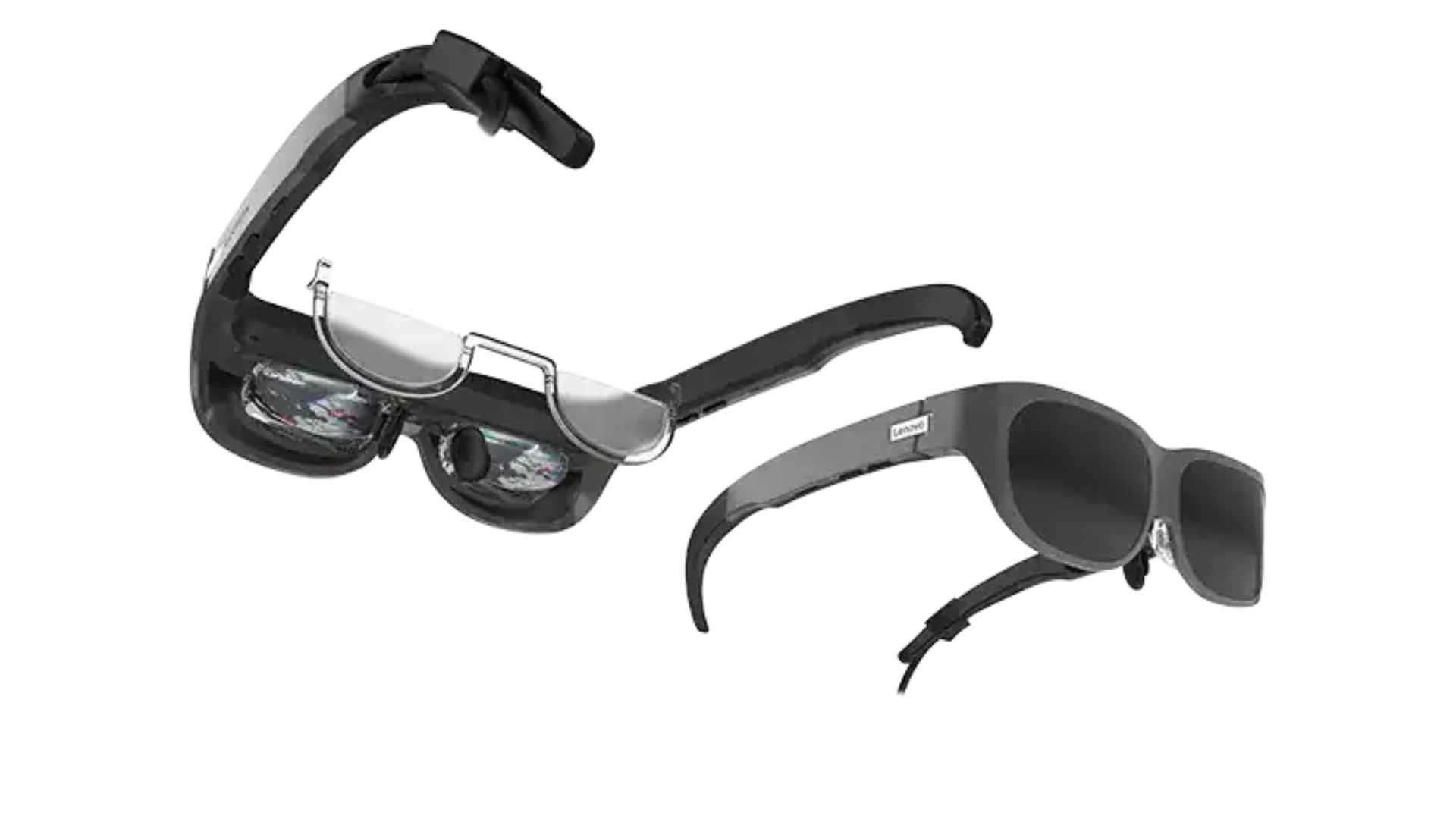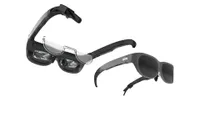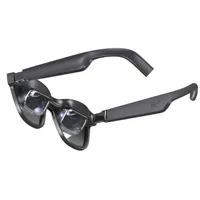Lenovo Legion Glasses vs. XREAL Air 2: Which AR glasses should you get?
Which AR glasses offer a better execution of their vision?
All the latest news, reviews, and guides for Windows and Xbox diehards.
You are now subscribed
Your newsletter sign-up was successful
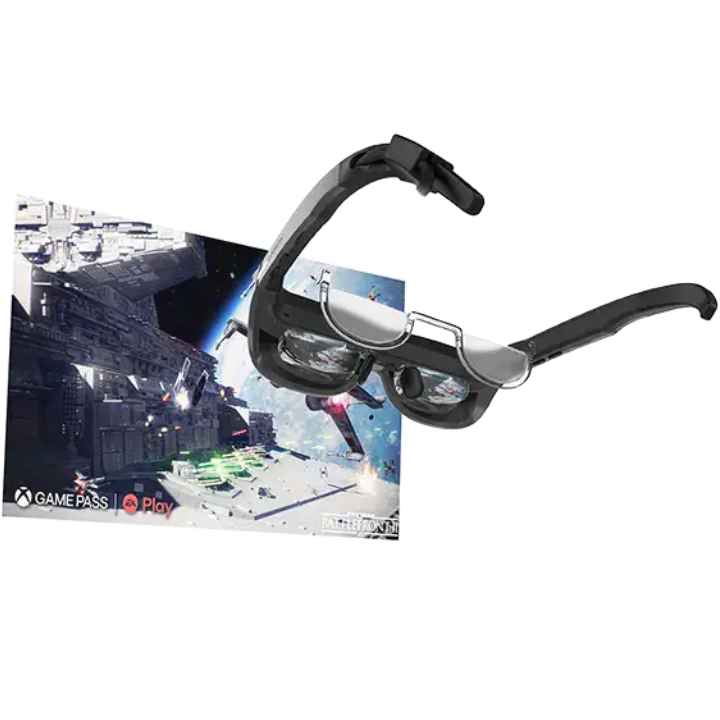
Lenovo Quality
Offering 1080p dual screens with a 60Hz refresh rate the Lenovo Legion Glasses pair perfectly with the newly launched Lenovo Legion Go handheld gaming device. It looks to be a great offering for a good price at just $329.
Pros
- Micro OLED Display
- 1920 X 1080 per eye
- High-fidelity built-in speakers
Cons
- Can be blurry at the edges
- 96 grams
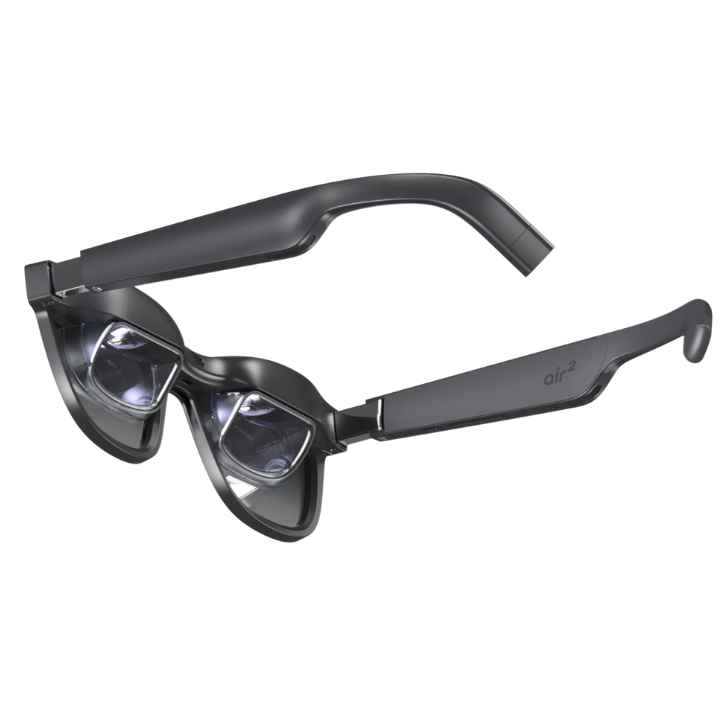
Lightweight comfort
Offering two versions, the XREAL Air 2 at $399 and the XREAL Air 2 Pro at $449, these AR glasses have stormed onto the market and received great reception from tech reviewers. The XREAL company focuses only on these glasses and is offering stylish frames with a great display.
Pros
- Two models Air 2 and Air 2 Pro
- Two color options
- Only 72grams
- Prescription frames available
- Three types of nose pads
Cons
- More expensive
- XREAL doesn't have the portfolio of Lenovo
The AR glasses market segment is starting to emerge, and two contenders seem to stand above the rest. The XREAL Air 2 AR glasses offer some great specifications and a lightweight package for $400, while the new contender coming from Lenovo in the Lenovo Legion Glasses offers a cheaper deal but cuts the refresh rate and weight a little bit more.
If you're looking to give some AR glasses a go, we can help you decide whether you should go with the new company whose only focus is on manufacturing these AR Glasses or if you should go with the long track record and technical portfolio of Lenovo you get with the Legion Glasses.
Ray-Ban Meta Glasses: A quick aside
If you don't want AR glasses, but instead you would like something more like the spiritual successor to Google Glass, then check out the offering from Meta. Meta has some Meta glasses designed by Ray-Ban that feature a camera, open-ear audio, and a microphone to allow for AI voice control and the ability to live stream what you see directly to your social media accounts.
The idea of being able to live stream whatever you see to an audience, or even record audio and video with your glasses that can be sent directly to the cloud, does remind me a bit of a Black Mirror episode. Privacy concerns aside, these are a cool product, and they look awesome as well.
While these aren't the focus of today's comparison, they are worth calling out for what they bring to the tech glasses market segment. It's also important to highlight the differences, given the buzz around the product and the fact that "smart glasses" is a term that can be loosely applied to many products.
Lenovo Legion Glasses vs. XREAL Air 2: Specifications
| Category | Lenovo Legion Glasses | XREAL Air 2 |
|---|---|---|
| Price | $329 | $399 | $449 for Pro |
| Weight | 96 grams | 72 grams |
| Display refresh rate | 60Hz | 120Hz |
| Display resolution | micro-OLED 1080p | micro-OLED 1080p |
| Connection | USB-C | USB-C |
As we can see the XREAL Air 2 is lighter and has double the refresh rate, but besides that, the differences will come down to build quality and of course, comfort, which is subjective to each user. For $70 more, you get a lighter and more smooth experience thanks to the 120Hz.
Now, it's time to discuss what these differences between the Lenovo Legion Glasses and XREAL Air 2 AR glasses mean for you.
Lenovo Legion Glasses vs. XREAL Air 2: Overall comparison
Why should I get the Lenovo Legion Glasses?
Why you can trust Windows Central
At the time of writing this guide, pricing for Lenovo Legion Glasses is $329.99 on the Lenovo website, and they are currently showing as "available soon." The last update about the glasses said they would launch in October 2023, but the release seems to have been delayed.
Lenovo states that with the Lenovo Legion Glasses, you can enjoy games or movies anytime, anywhere. They are a personal, wearable, plug-and-play display. You are able to connect them to the new Lenovo Legion Go, which is available now. Like other AR glasses, these feature a virtual display with micro-OLED tech behind the lenses, so nobody else can see the screen the wearer gets to see.
If you don't want to throw down an entire $400 for some glasses and $329 is a bit more palatable, then the Lenovo Legion Glasses could be a great option for you. Also, for me personally, the Lenovo name holds a lot of weight and I trust them to make a good, high-quality, dependable product and that can translate to a lot of consumer trust.
Why should I get the XREAL Air 2 AR glasses?
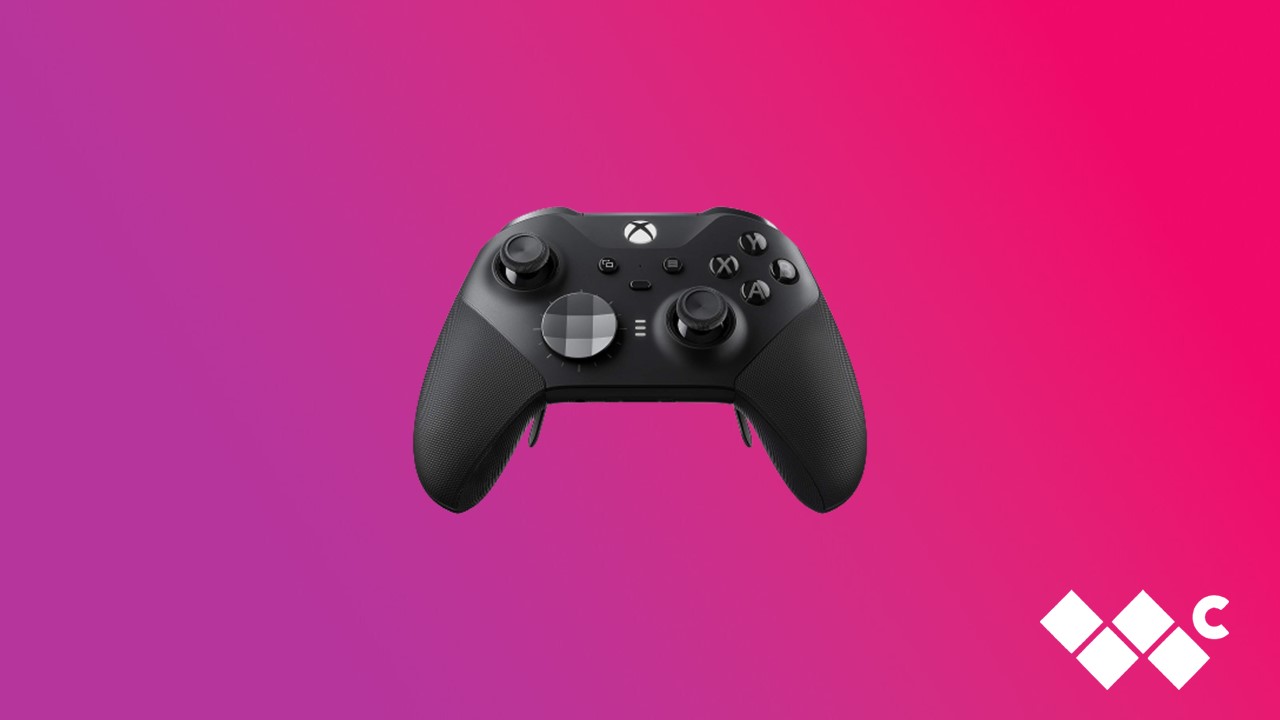
- Best Xbox controllers
- Best gaming monitors
- Best SSDs
- Best PC headsets
It is important to note that the XREAL Air 2 has a regular and pro model. The AIR 2 is $400 and the Air 2 Pro is $450. They both have a 1080p micro-OLED display and offer extremely low-weight designs. XREAL offers prescription frames through one of their partners, which is a great option for those that need it. Check out more info on them on the XREAL website.
In our review of the XREAL Air 2 AR glasses, we were impressed by the lightweight design and the display. You are able to adjust the size of the screen up to 330 inches, which is great. The built-in directional speakers that send sound into the ear canal work great. Overall, these are a great option, but they are more expensive than the Lenovo option.
The decision really comes up to you and your preferences. The Lenovo Legion Glasses are still a bit of an unknown, but we have gathered all of the information we can based on limited hands-on previews. I think if you have the money the XREAL Air 2 or Air 2 Pro these are the way to go. Having lighter-weight glasses with a better refresh rate is worth the $70 price difference.
At the time of writing his guide, the XREAL Air 2 had dozens of reviews on YouTube while the release of the Lenovo Legion Glasses seems to be delayed, but it should be imminent as Lenovo has sent us a unit for testing. SO the XREAL Air 2 glasses are a bit more tried and tested, but once the Lenovo Legion Glasses are released we should see if there are any downsides we missed here.
The Lenovo Legion Glasses have all the specs where they count and look great to boot. Hands-on previews with the glasses were positive, and coming in $70 cheaper than the XREAL Air 2 lowers the barrier to entry into the AR glasses space.
After comparing the two glasses together, the XREAL Air 2 and Air 2 Pro are still the best AR glasses you can get for a reasonable price. They are lighter weight and have better refresh rates than the Lenovo Legion Glasses and only cost $70 more.
All the latest news, reviews, and guides for Windows and Xbox diehards.

Colton is a seasoned cybersecurity professional that wants to share his love of technology with the Windows Central audience. When he isn’t assisting in defending companies from the newest zero-days or sharing his thoughts through his articles, he loves to spend time with his family and play video games on PC and Xbox. Colton focuses on buying guides, PCs, and devices and is always happy to have a conversation about emerging tech and gaming news.
